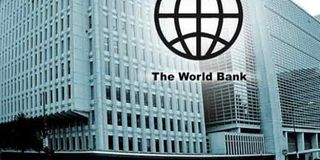Empower women for growth, advises World Bank

Dar es Salaam. The World Bank has asked sub-Sahara African countries to focus on empowering women to boost growth whose 2019 projection was cut by 0.2 percentage points from the Bank’s earlier forecast.
Regional economic growth is expected to slow by 2.6 per cent, largely hampered by persistent uncertainty in the global economy and the slow pace of domestic reforms. This is according to the World Bank’s October edition of Africa’s Pulse, which was launched yesterday.
“Empowering women will help boost growth. African policy makers face an important choice: business as usual - or deliberate steps toward a more inclusive economy,” said Hafez Ghanem, the World Bank Vice President for Africa.
“After several years of slower-than-expected growth, closing the opportunity gap for women by removing barriers to their economic participation is the best way forward,” he added.
Tanzania is one of the top growth performers in the region, with close to seven per cent gross domestic product growth.
Other countries in the list of top ten movers include Burkina Faso, Côte d’Ivoire, Ethiopia, Ghana, Guinea, Kenya, Rwanda, Senegal and Uganda.
This group of countries is estimated to produce 25 per cent of the sub-Sahara Africa’s total GDP.
The report states further that external environment is challenging for sub-Saharan Africa.
“Global growth has continued to slow amid rising policy uncertainty due to the renewed intensification of trade tensions in the global economy. Partly as a result, the prices of most of sub-Saharan Africa’s commodity exports have weakened since the second quarter of 2019,” it stated.
Prices of crude oil and base metals are expected to remain below their 2018 peak. While global financial conditions have eased, capital inflows in the region have remained modest, as trade policy uncertainty weighs on investor sentiment.
Women empowerment
The latest edition includes two special topics – accelerating poverty reduction, and women’s empowerment.
Sub-Saharan Africa is said to be the only region in the world that can boast that women are more likely than men to be entrepreneurs.
African women contribute to a large share of agricultural labour across the continent. However, the region’s success story of rising women’s participation in the labour force is stifled by large and persistent earnings gaps between men and women.
Women farmers in sub-Saharan Africa produce 33 per cent less per hectare of land than men do. Female entrepreneurs or business owners earn 34 per cent less profits than male business owners.
The study recommends policy makers now to confront the constraints that disproportionately affect women, and implement policies to help them boost growth.
The report cites the example of digital technology application in Tanzania, where women-owned micro-firms are trained on M-Pawa, a mobile savings account linked to M-Pesa that also gives customers access to credit.
Women who received the programme had improved business practices, increased credit access and use, and increased capital stocks; the women saved almost four times more on M-Pawa - and were 16 per cent more likely to obtain a loan than a comparison group.




